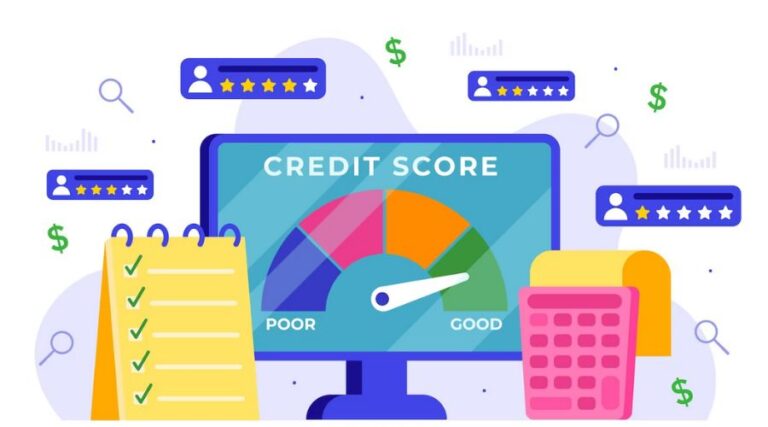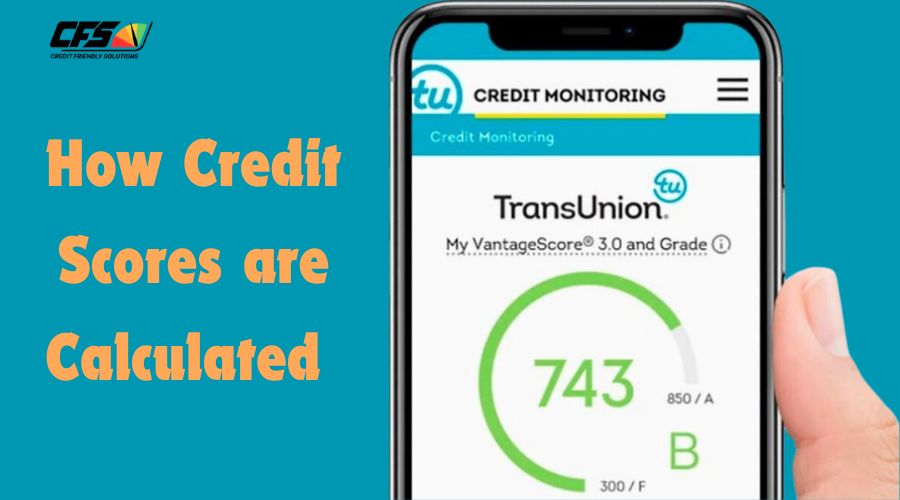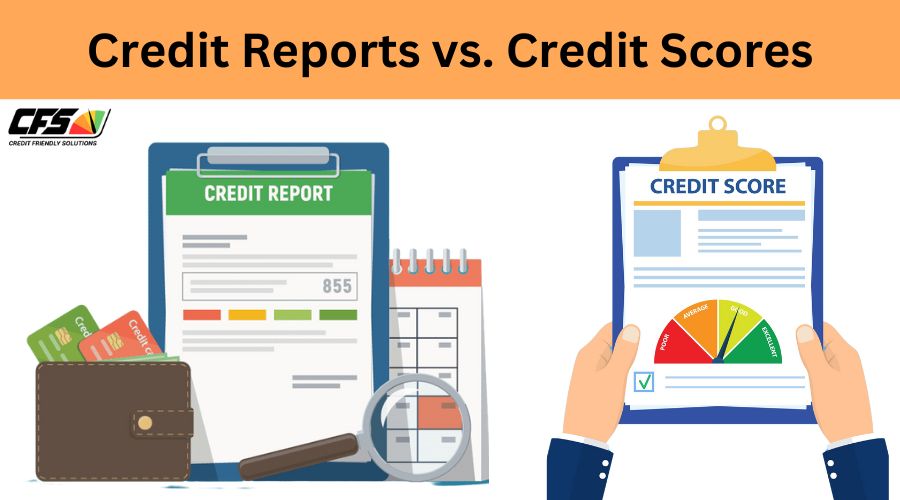Introduction to Credit Score Monitoring
In the financial landscape today, effective credit score monitoring is crucial. It influences loan approvals and credit card interest rates. At Credit Friendly Solutions, we specialize in guiding you through the intricacies of monitoring, ensuring you have the tools for a robust credit profile.
Understanding Credit Scores
What is a Credit Score?
A credit score is a numerical representation of your creditworthiness, typically ranging from 300 to 850. This score is calculated based on your credit history and is used by lenders to determine the risk of lending you money.
How Credit Scores are Calculated
FICO Score
The FICO Score is the most commonly used credit score, and it’s calculated based on the following factors:
- Payment History (35%): Your track record of making payments on time.
- Credit Utilization (30%): The ratio of your credit card balances to your credit limits.
- Length of Credit History (15%): The age of your credit accounts.
- Credit Mix (10%): The variety of credit accounts you have (e.g., credit cards, mortgages).
- New Credit (10%): The number of recently opened credit accounts.
VantageScore
VantageScore is another popular scoring model, using similar factors but weighing them differently:
- Payment History (40%)
- Depth of Credit (21%)
- Credit Utilization (20%)
- Recent Credit (11%)
- Balances (6%)
- Available Credit (2%)
Factors Affecting Your Credit Score
- Payment History: Late payments can significantly impact your score.
- Credit Utilization: High balances relative to your credit limits can lower your score.
- Length of Credit History: A longer history generally boosts your score.
- Types of Credit Accounts: A mix of credit accounts can positively influence your score.
- Recent Credit Inquiries: Too many recent inquiries can hurt your score.
Benefits of Credit Score Monitoring
Credit score monitoring helps you detect fraud early, improve your financial health, and make informed decisions about loans and credit.
Early Detection of Fraud and Identity Theft
Credit monitoring allows you to spot unauthorized activities on your accounts promptly, helping prevent fraud and identity theft.
Improved Financial Management
By regularly monitoring your credit score, you can better manage your finances and make informed decisions about borrowing and spending.
Better Loan and Credit Card Terms
A good credit score can help you secure loans and credit cards with favorable terms, including lower interest rates and higher credit limits.
Monitoring for Credit Score Changes
Regular updates on your credit score help you understand the impact of your financial actions and identify areas for improvement.
How to Monitor Your Credit Score
Monitor your credit score regularly through free online services, credit bureaus, and financial apps to stay informed and protect your financial health.
Free Credit Monitoring Services
- AnnualCreditReport.com: This government-mandated site allows you to access your credit report for free once a year from each of the three major credit bureaus: Experian, Equifax, and TransUnion.
Paid Credit Monitoring Services
Overview of Major Services
- Experian: Offers daily credit score updates and identity theft protection.
- Equifax: Provides credit score monitoring, credit reports, and identity theft insurance.
- TransUnion: Includes credit score updates, credit reports, and credit lock features.
Credit Monitoring Apps
Credit monitoring apps provide convenient access to your credit score and alerts for changes. Look for features like real-time notifications, identity theft protection, and user-friendly interfaces.
Comparing Free vs. Paid Services
Free services offer basic monitoring and access to your credit reports, while paid services provide more comprehensive features, such as daily updates, enhanced fraud protection, and additional financial tools.
Choosing a Credit Monitoring Service
Select a credit monitoring service that offers comprehensive reports, real-time alerts, and identity theft protection for complete financial security.
What to Look for in a Credit Monitoring Service
- Frequency of Updates: Choose a service that provides regular updates to keep track of changes in your credit score.
- Alerts and Notifications: Ensure the service offers real-time alerts for any significant changes or suspicious activities.
- Identity Theft Protection: Look for services that include identity theft protection and recovery assistance.
- Customer Support: Good customer support is essential for addressing any issues or concerns promptly.
Reviews of Top Credit Monitoring Services
Pros and Cons
- Experian:
- Pros: Comprehensive features, daily updates, robust identity theft protection.
- Cons: Higher cost compared to some competitors.
- Equifax:
- Pros: Credit score monitoring, identity theft insurance, comprehensive reports.
- Cons: Past data breach concerns.
- TransUnion:
- Pros: Credit lock feature, frequent updates, user-friendly app.
- Cons: Can be expensive for premium features.
User Experiences
Customer reviews and testimonials can provide insights into the effectiveness and reliability of different credit monitoring services. Look for feedback on ease of use, accuracy of updates, and customer service quality.
If you want a credit solutions that helps manage and improve your financial health, consider credit score monitoring, debt consolidation, and credit counseling services visit Credit Friendly Solutions.
Credit Reports vs. Credit Scores
What is a Credit Report?
A credit report is a detailed record of your credit history, including information about your credit accounts, payment history, and any public records or collections.
Differences Between Credit Reports and Credit Scores
While a credit report provides a comprehensive overview of your credit history, a credit score is a numerical summary of that history. Both are essential for understanding your creditworthiness.
How to Access and Read Your Credit Report
You can access your credit report for free once a year from each of the major credit bureaus through AnnualCreditReport.com. When reviewing your report, check for accuracy and look for any discrepancies that need to be addressed.
Disputing Errors on Your Credit Report
If you find errors on your credit report, you can dispute them with the credit bureau. Provide documentation to support your claim, and follow up to ensure the corrections are made.
Protecting Your Credit Score
Safeguard your credit score by paying bills on time, keeping credit utilization low, and regularly reviewing your credit reports for errors.
Best Practices for Maintaining a Good Credit Score
- Pay Your Bills on Time: Timely payments are crucial for maintaining a good credit score.
- Keep Credit Utilization Low: Aim to use less than 30% of your available credit.
- Limit New Credit Inquiries: Only apply for new credit when necessary.
- Maintain a Mix of Credit Accounts: A variety of credit types can positively impact your score.
- Regularly Monitor Your Credit: Stay informed about changes to your credit score and report.
Common Mistakes to Avoid
- Missing Payments: Even one late payment can significantly impact your score.
- Maxing Out Credit Cards: High credit utilization can lower your score.
- Closing Old Accounts: This can shorten your credit history and reduce your score.
- Ignoring Your Credit Report: Failing to review your credit report can lead to unnoticed errors or fraud.
How to Rebuild a Damaged Credit Score
- Create a Budget: Manage your finances to ensure timely payments.
- Pay Down Debt: Reduce your outstanding balances.
- Consider a Secured Credit Card: This can help rebuild your credit if used responsibly.
- Seek Professional Help: Credit counseling services can provide guidance and support.
Impact of Hard Inquiries and Soft Inquiries
- Hard Inquiries: These occur when a lender checks your credit for a loan or credit card application. Multiple hard inquiries in a short period can lower your score.
- Soft Inquiries: These checks are usually for informational purposes and do not impact your credit score.
Key Points of Credit Score Monitoring
| Aspect | Details |
|---|---|
| Importance | Detects fraud early, improves financial management, secures better loan terms |
| Credit Score Calculation | Factors include payment history, credit utilization, length of credit history, and more |
| Monitoring Methods | Free services (AnnualCreditReport.com), paid services (Experian, Equifax, TransUnion), apps |
| Choosing a Service | Look for frequent updates, alerts, identity theft protection, and good customer support |
| Credit Reports vs. Scores | Reports provide detailed history, scores are numerical summaries |
| Protecting Your Score | Pay bills on time, keep utilization low, limit inquiries, maintain a mix of credit accounts |
| Legal Rights | FCRA rights include accessing reports, disputing inaccuracies, and protecting credit information |
Legal Aspects of Credit Monitoring
Understand your rights under laws like the Fair Credit Reporting Act to ensure accurate and fair credit monitoring practices.
Your Rights Under the Fair Credit Reporting Act (FCRA)
The FCRA provides you with several rights, including access to your credit report, the ability to dispute inaccurate information, and protection against unauthorized access to your credit information.
How to Dispute Inaccurate Information
If you find inaccuracies on your credit report, contact the credit bureau to dispute the information. Provide evidence to support your claim, and follow the bureau’s process for resolution.
Credit Score Monitoring and Data Privacy
Ensure the credit monitoring service you choose adheres to strict data privacy standards. Protect your personal information by using secure services and being cautious of phishing scams.
Contact Us
If you have any questions or need assistance with credit score monitoring, please don’t hesitate to reach out to us at Credit Friendly Solutions. Our team is here to help you manage and improve your financial health. Contact us today at +1 916-680-8501 for expert advice and support. Check out our Yelp page for customer reviews of Credit Friendly Solutions!
FAQs
Q: How often should I check my credit score?
It’s recommended to check your credit score at least once a month to stay informed about any changes.
Q: Will checking my credit score lower it?
No, checking your own credit score is considered a soft inquiry and does not affect your score.
Q: Can I improve my credit score quickly?
While there’s no quick fix, paying down debt, making timely payments, and correcting errors on your credit report can help improve your score over time.
Q: Do all credit monitoring services offer identity theft protection?
No, not all services include identity theft protection. It’s essential to choose a service that offers comprehensive protection if this is a concern for you.









